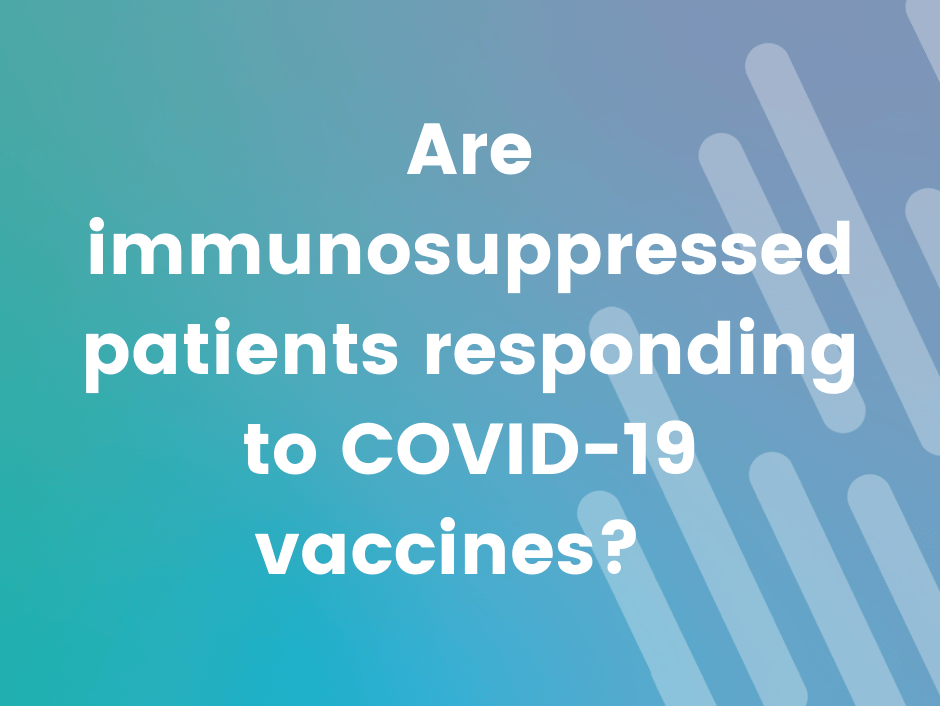By the Autoimmune Hepatitis Association

In May, a follow-up study from researchers at John Hopkins showed how immunosuppressed patients respond after the second dose of SARS-CoV-2 vaccine. The same group provided SARS-CoV-2 vaccine response data after only one dose in March.
In order to understand “response” to vaccine, these investigators measured the formation of anti-spike protein among 658 transplant patients. These antibodies are the body’s response to the SARS-CoV-2 vaccine and finding these indicate the body has produced an immune reaction that should provide protection against natural infection with novel coronavirus. Learn more here. Among the patients studied (130 liver transplant patients), many were on immunosuppression mediations similar to autoimmune hepatitis (AIH) patients.
Among all patients in this study, only 15% had a measurable anti-spike protein after both the first AND second dose of vaccine. 39% had no anti-spike protein after the first dose but DID eventually have a response after the second dose. Ultimately, 46% DID NOT have a response after having both doses of vaccine.
Among those patients taking azathioprine or mycophenolate mofetil for immunosuppression (473 patients), 57% DID NOT have a response after both doses of vaccine. In simple terms, only 43% of patients taking azathioprine or mycophenolate mofetil ultimately had measurable amounts of anti-spike protein. The authors also concluded that the level of anti-spike protein made by these patients was also generally lower than patients not on any immunosuppression.
What do we take away from this study? We still don’t know what levels of anti-spike protein are protective against SARS-CoV-2, but future studies should seek how to boost the anti-spike protein response of immunosuppressed patients. Immunosuppressed patients may still be at risk of COVID-19 despite vaccination, but how we assess that risk is still unclear. For instance, low levels of anti-spike protein may not provide enough protection. Lastly, we still don’t know if the formation of anti-spike protein is all that matters for protection, as there are other immune cell reactions from vaccines (T-cell mediated immunity) that could provide benefit, but these remain unstudied.
